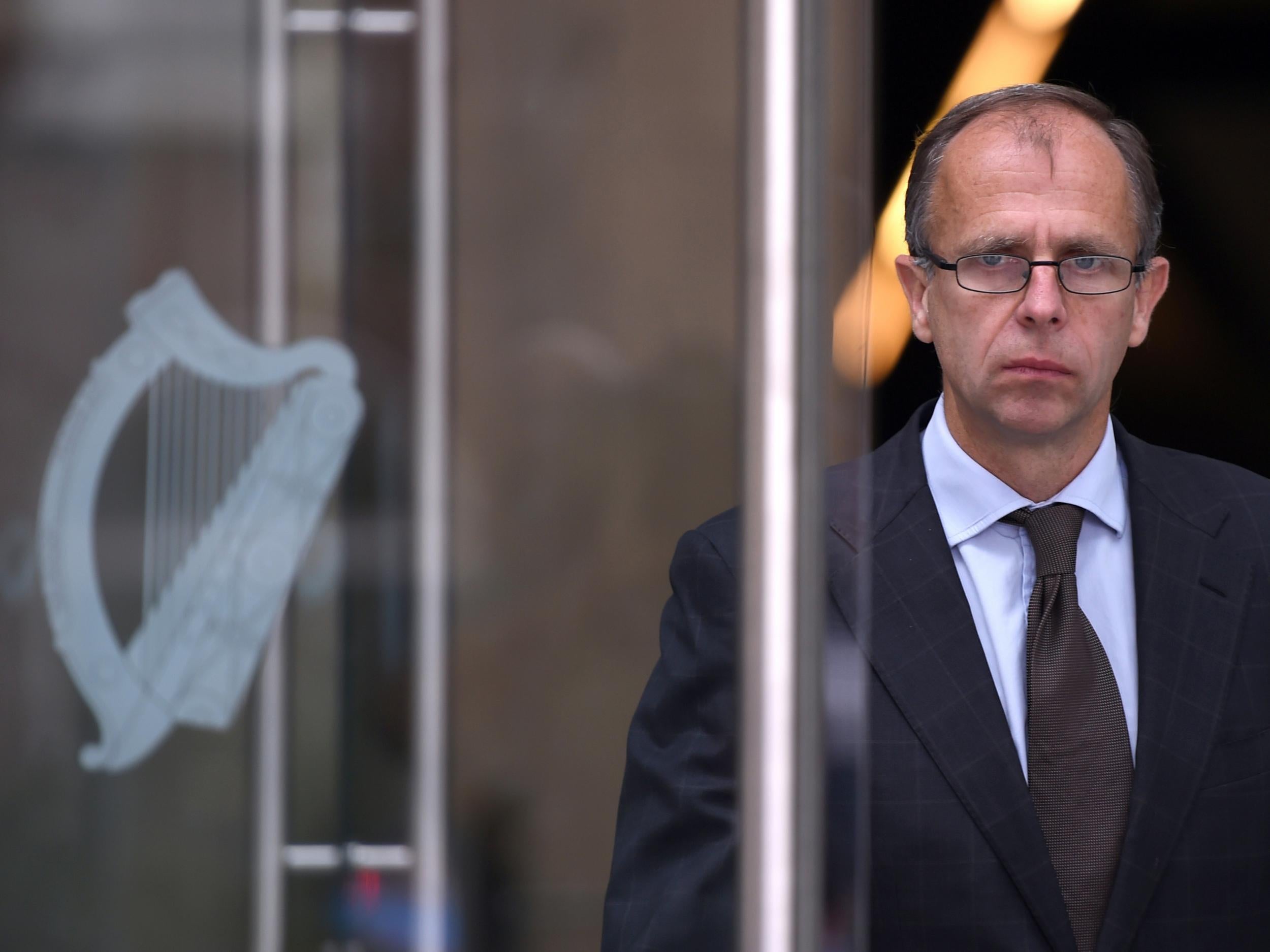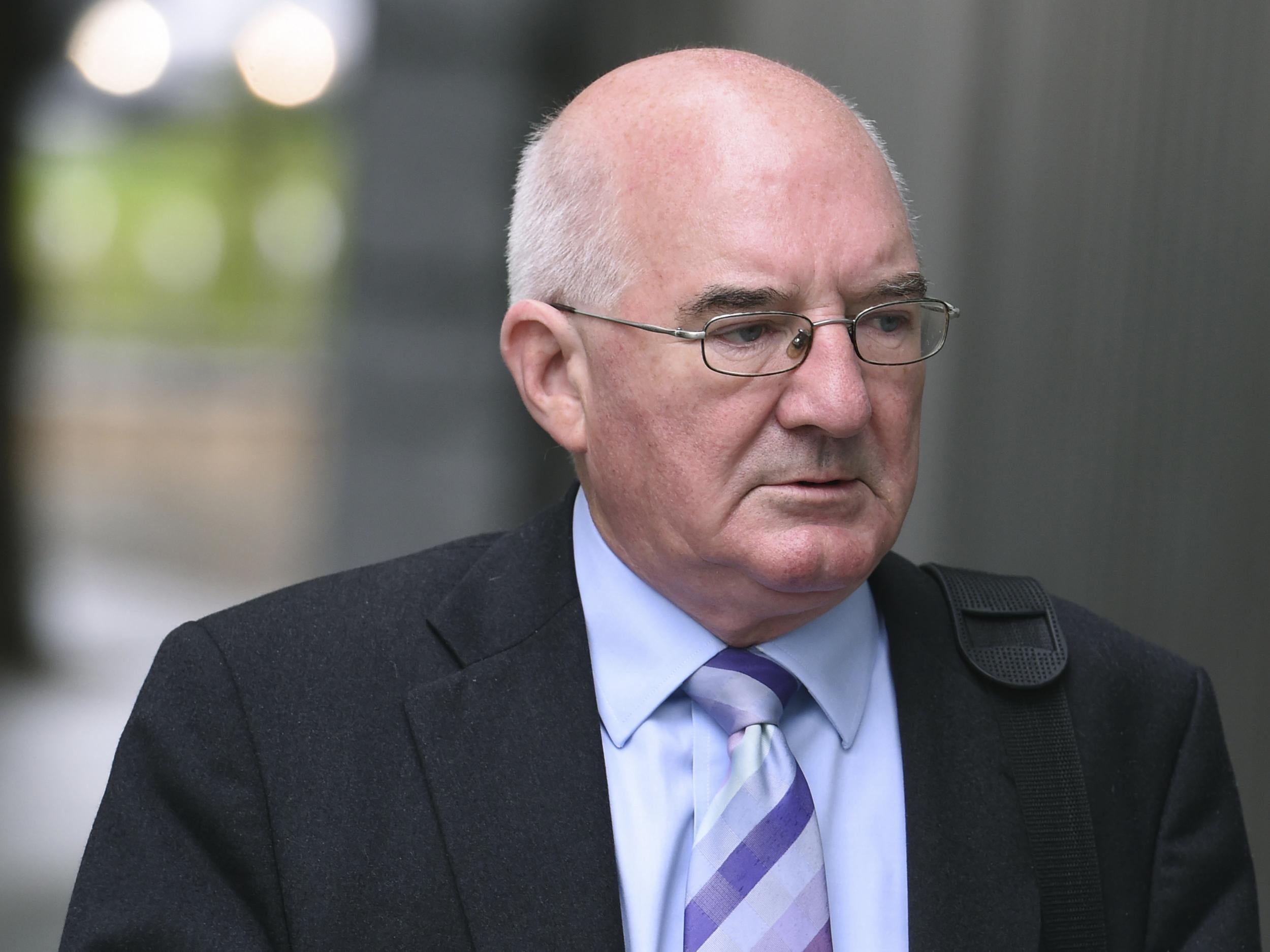Ireland jails three top bankers for 'deceitful and corrupt' actions in 2008 financial crisis
Judge condemns trio for inflating bank's deposit levels by €7.2bn

Three former senior Irish bankers have been jailed for their role in the collapse of a bank during the 2008 financial crisis.
Willie McAteer, John Bowe and Denis Casey conspired to conceal losses of billions of euros at the defunct Anglo Irish Bank – the biggest accounting fraud in Irish corporate history, which contributed to the country’s devastating financial crash.
The trio were condemned for carrying out “sham transactions” designed to inflate Anglo's deposit levels by €7.2bn (£6bn) in the Dublin bank's 2008 earnings report.
They used “dishonest, deceitful and corrupt” tactics to defraud shareholders and cloak the funding crisis enveloping the bank, said Judge Martin Nolan.
Former Anglo executive Mr McAteer, 65, was sentenced to three-and-a-half years in prison while his former colleague Mr Bowe, 52, received a sentence of two years.
And co-conspirator Mr Casey, 56, former chief executive of financial services company Irish Life and Permanent, was jailed for two years and nine months.

Mr Casey’s bank had supplied funds that Anglo falsely claimed as new customer deposits in full-year results to shareholders.
The move was designed to reassure the shareholders of the bank’s financial position after aggressively betting for more than a decade on Ireland's property boom – which was about to come crashing down amid the global credit crunch that year.
Investigators found that the €7.2bn was on Anglo's books for barely one day before being transferred back to Irish Life and Permanent.

Ireland's government discovered in October 2008 that Anglo was on the verge of bankruptcy and declared, in event of an Irish bank failure, that the taxpayer would step in to repay all depositors and bondholders.
This confidence-boosting measure left the state with nightmarish bills as the true scale of Anglo's debt mountain started to emerge.
Lawyers for the men argued that government and regulatory officials had spurred them to collude on transfers to maintain market confidence in Irish banking.
“I can appreciate the desperation of the moment. I can appreciate that everyone at Anglo wanted to save the bank. But saving the bank isn't everything,” said Judge Nolan.
Anglo was nationalised in 2009 and gradually dissolved.
Ireland absorbed paper losses at Anglo and four other banks, driving the 2010 national deficit to a post-war European record of 32 per cent of economic output – destroying the country's credit rating and forcing it to seek a three-year international bailout.
Relatively few bankers have been criminally penalised for their role in the global financial crash so far, although Iceland has jailed 29 financial bosses for their role in the event which crippled the county’s economy.
Irish Life and Permanent, like Anglo, was eventually nationalised.
The government divided the bank in two, sold off the profitable Irish Life wing in 2013 and retained its retail banking unit, Permanent TSB, which remains hobbled by a portfolio of loss-making mortgages.
Anglo's two most senior figures, former chairman Sean FitzPatrick and chief executive David Drumm, remain free on bail pending their own trials for fraud and other offenses expected to run separately into at least 2017.
Mr Drumm fled to the United States in 2009, failed to win bankruptcy protection there after a judge ruled he used his wife to shelter assets, and spent five months in a US jail while unsuccessfully fighting extradition back to Ireland in March.
Additional reporting by Associated Press
Join our commenting forum
Join thought-provoking conversations, follow other Independent readers and see their replies
Comments
Bookmark popover
Removed from bookmarks